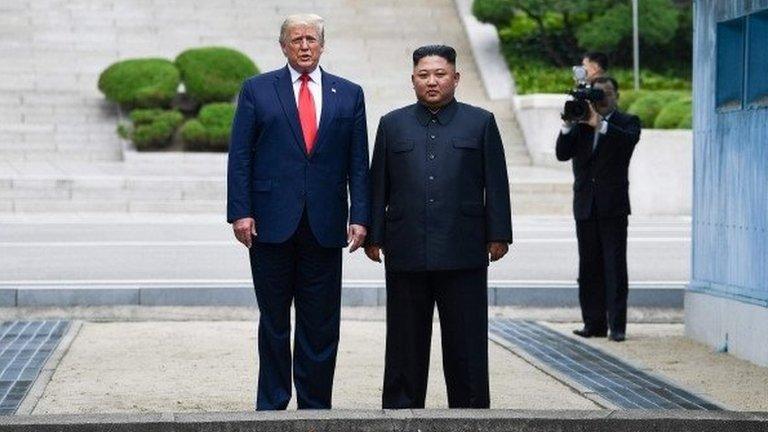Choe In-guk: Son of South Korean defectors 'moves' to the North
- Published
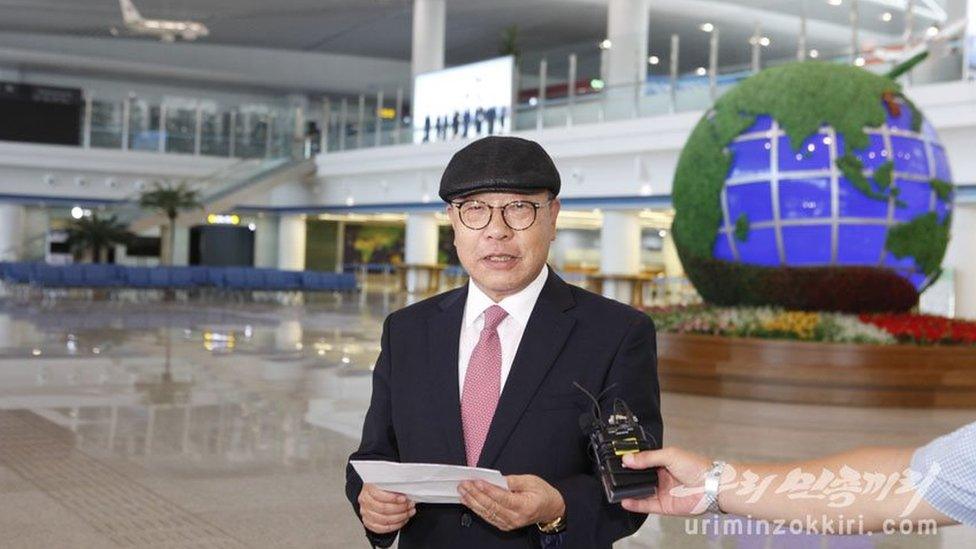
Choe In-guk's parents were the most high-profile South Korean defectors to the North
The son of high-profile South Korean defectors is reported to have moved to North Korea, in a rare case of someone seeking to settle in the dictatorship.
Choe In-guk is the son of a South Korean ex-foreign minister who defected to the North with his wife in 1986.
According to North Korean state media he will live in the North and work on reunification issues.
Defections this way are very rare. It is more common for people from the North to try to escape to the South.
The two countries are technically still at war and South Koreans need permission to visit the North.
South Korea's Unification Ministry confirmed that Mr Choe did not request such permission for his trip.
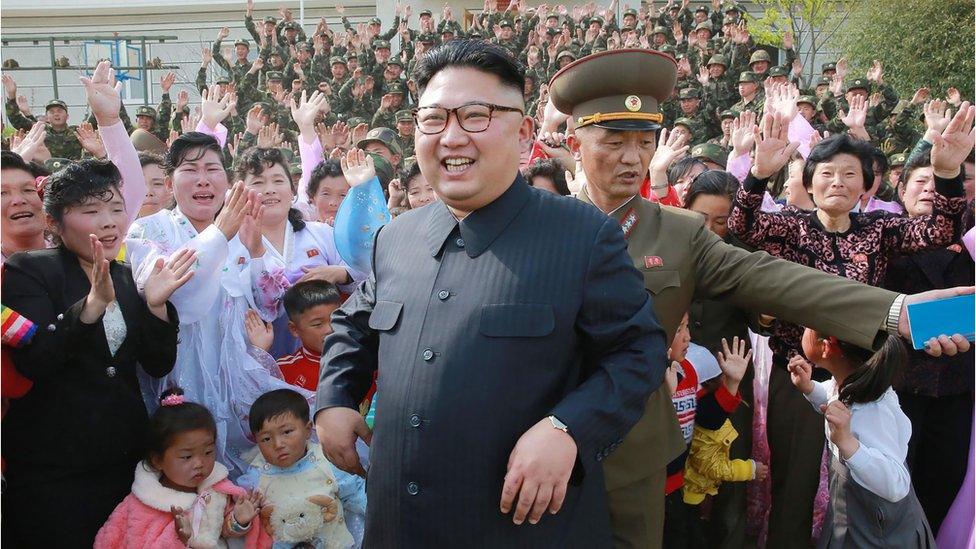
Usually, people try to leave Kim Jong-un's country rather than join it
"It's not yet clear how exactly his defection came about," Oliver Hotham of specialist news site NK News, based in Seoul, told the BBC.
"But it would be fairly simple for a South Korean to get to the North if they had the regime's blessing by travelling through China."
However if Mr Choe has violated South Korean law by not seeking permission from his government, he could potentially be arrested if he ever returned to the South, experts say.
Who is Choe In-guk?
Mr Choe is a 73-year-old South Korean citizen, but little is known about his personal life or political views. He has a wife and daughter in the South.
His parents, however, were the most high-profile South Koreans to defect to the North since the end of the Korean War.
Mr Choe's arrival in Pyongyang was reported by the North's state media, which showed him being warmly received by North Korean officials.
He is cited on the North Korean propaganda website Uriminzokkiri as saying: "To live in and follow a country for which I feel thankful is a path to protect the will left by my parents.
"So I've decided to permanently live in North Korea, albeit belatedly."
South Korean media outlets report that Mr Choe did not have an easy life in the South and had to fight the stigma of being the "son of traitor".
He reportedly changed jobs several times and lived on money his mother sent from North Korea before she died in 2016.
Mr Choe frequently travelled to the North in recent years and attended his mother's funeral there.
Who were his parents?
His father Choe Tok-sin served as foreign minister of South Korea during the 1960s.
In the 1970s he emigrated to the US where he became a stern critic of the South Korea government under military leader Park Chung-hee.
Four defectors talk about what life is like in North Korea
A decade later, in 1986, he made headlines by defecting to the North along with his wife, Ryu Mi-yong. They left their five adult children behind in the South.
Both became part of the political elite in their new home country. Choe Tok-sin died in 1989 and Ryu Mi-yong assumed his role as leader of a religious sect. She also took on other positions.
The family has longstanding ties to the North Korean leadership. Choe In-guk's paternal grandfather is known to have been a mentor to Kim Il-sung, the founder of North Korea, during the fight against Japanese rule.
How common are defections?
Defectors on the Korean peninsula are usually citizens of the North who try to escape from the closed-off dictatorship to the democratic and wealthier South. Such defections are very dangerous.
Seoul says more than 30,000 North Koreans have illegally crossed the border since the end of the Korean War in 1953.
According to South Korean statistics the numbers have dropped somewhat in recent years. There were 1,127 defections in 2017 compared to 2,706 in 2011.
In some cases soldiers have crossed the border on foot, often under a hail of bullets.
Most flee via China, which has the longest border with North Korea. It is easier to flee over this border than the heavily-protected Demilitarised Zone (DMZ) between the two Koreas.
China regards defectors as illegal migrants rather than refugees and often forcibly repatriates them.
Defections from the South to the North are very rare and often involve so-called "double defectors" - people who first fled North Korea for the South but eventually return to the North.
They were more common before the devastating famine believed to have killed hundreds of thousands of people in North Korea in the mid-1990s.
- Published6 July 2019
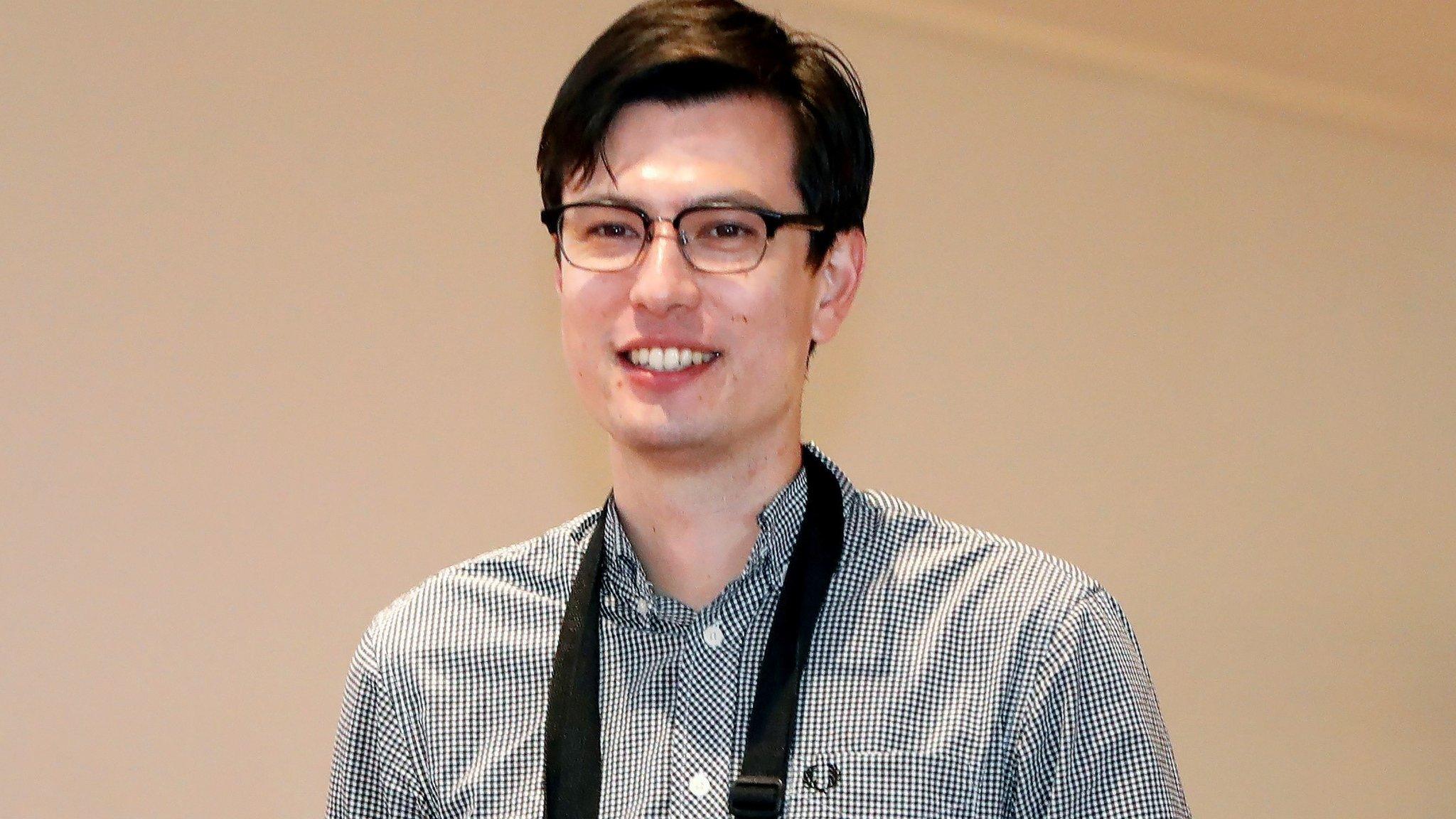
- Published5 July 2019
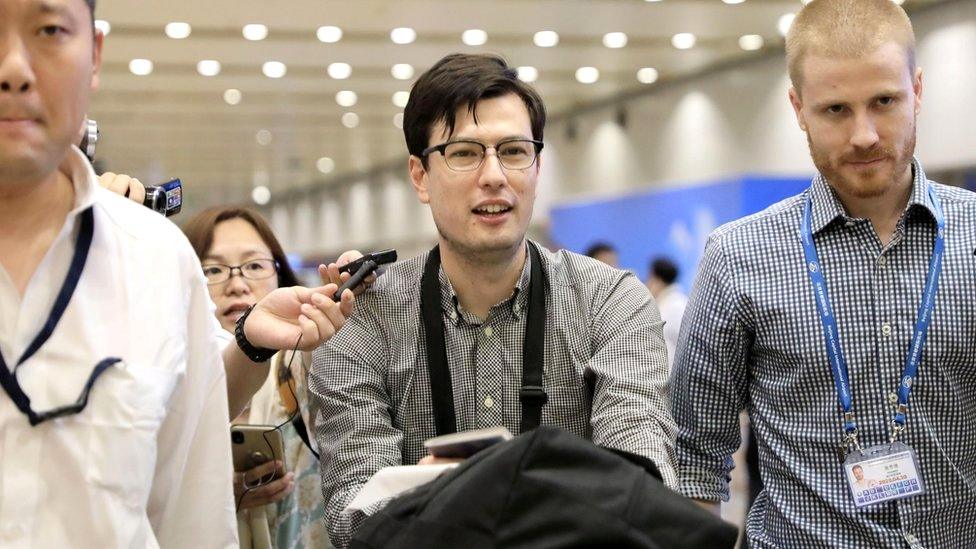
- Published30 June 2019
